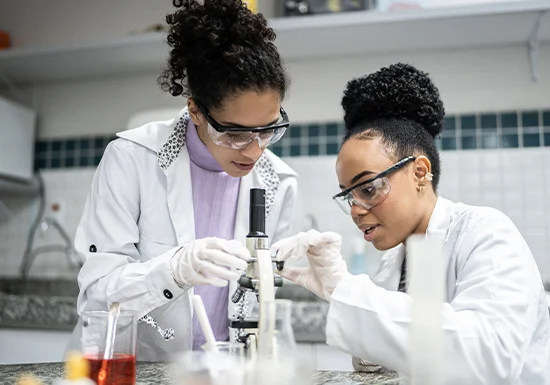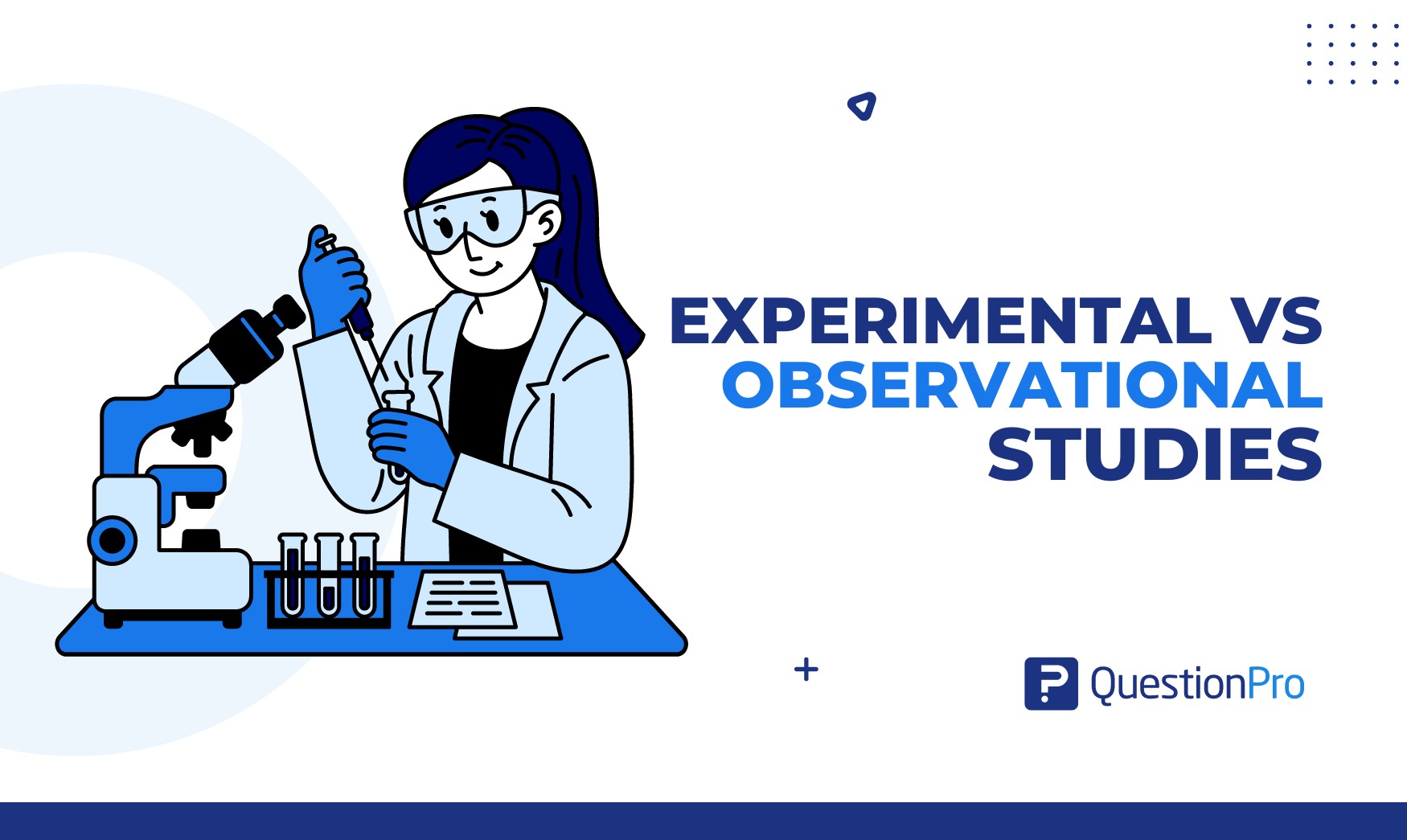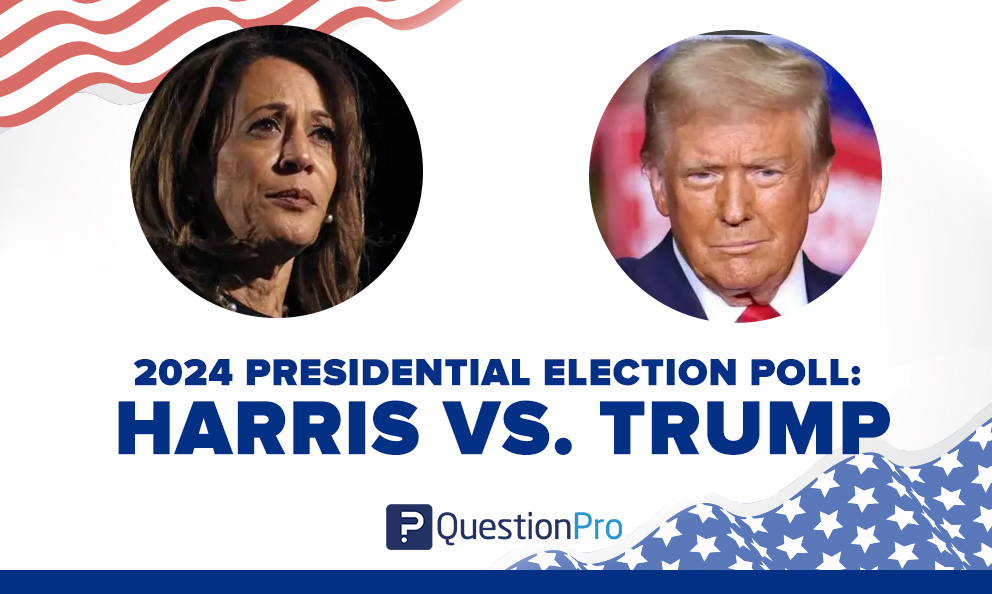
Home > Blog > Tips for Online Students > The Science of Observation: Comparing Observational Study vs Experiment
Tips for Online Students , Tips for Students

The Science of Observation: Comparing Observational Study vs Experiment
Updated: October 3, 2024
Published: October 1, 2024

Observation is fundamental in scientific inquiry, helping researchers understand complex phenomena by collecting data and evidence. Observational studies and experiments are two primary research methods for gaining insights and drawing conclusions.
While observational studies involve monitoring subjects without interference, experiments involve manipulating variables to study effects. Each method has its strengths and limitations.
Scientists often use both observational studies and experiments to complement each other, ensuring a thorough understanding of the subject and validation of findings.

What is an Observational Study?
An observational study is a research method where researchers observe and collect data without manipulating the environment or influencing the subjects. This non-experimental approach allows for the natural occurrence of events and behaviors, providing valuable insights into real-world situations.
Observational studies are commonly used in fields like epidemiology, sociology, and ecology, where ethical or practical constraints make experimental manipulation difficult. Observational studies can reveal patterns and associations that might be missed in controlled settings by focusing on naturally occurring relationships.
What is an Experiment Study?
An experimental study involves deliberately manipulating one or more variables to observe their effects on a dependent variable under controlled conditions. Key components of experiments include the random assignment of participants, the presence of control and experimental groups, and the manipulation of independent variables. This method is designed to establish cause-and-effect relationships by minimizing confounding factors. Experimental studies are particularly valuable in fields like psychology , medicine , and natural sciences , where precise control over variables is crucial for testing hypotheses and understanding specific phenomena.
Observational Study vs Experiment: What are the Key Differences?
Observational studies and experiments differ fundamentally in their approach to data collection and control over variables:
Researcher Control Over Variables
In experiments, researchers have significant control over variables, allowing them to manipulate independent variables and observe the effects on dependent variables. In contrast, observational studies involve no direct manipulation, with researchers observing variables as they naturally occur.
Ability to Establish Causation
Experiments are well-suited to establish causation due to controlled conditions and random assignment, which help isolate the effects of specific variables. Observational studies, on the other hand, are limited in establishing causation because they do not involve direct manipulation of variables and are more prone to confounding factors.
Randomization of Subjects/Participants
Randomization is a key feature of experimental studies, ensuring participants are randomly assigned to different groups (e.g., control or experimental). This process helps eliminate bias and distribute potential confounding factors evenly. In contrast, observational studies typically do not involve randomization, as researchers observe subjects in their natural settings without influencing group assignments.
Manipulation of Independent Variable
In experiments, researchers actively manipulate one or more independent variables to study their effect on a dependent variable. This direct intervention allows for a controlled environment to test specific hypotheses. Observational studies do not involve such manipulation; instead, researchers observe existing conditions and variables without altering them.
Natural vs. Controlled Setting
Observational studies are conducted in natural settings, providing insights into real-world behaviors and interactions. However, experiments are often conducted in controlled environments like laboratories, allowing researchers to isolate specific variables and minimize external influences.
Potential for Confounding Factors
Observational studies are more susceptible to confounding factors because they lack the controlled environment of experiments. Confounding factors can influence both the independent and dependent variables, making it difficult to isolate the cause of observed effects. In experiments, researchers can control or account for these confounding factors, reducing their impact on the results.
Ethical Considerations and Limitations
Ethical concerns can limit the use of experiments, especially when manipulating variables could harm participants or when studying sensitive topics. Observational studies often provide an ethical alternative since they do not involve manipulation. However, they may still face ethical challenges related to privacy and consent, especially in covert observations or studies involving vulnerable populations.
Sample Size Requirements
The sample size needed can vary significantly between observational studies and experiments. Observational studies may require larger sample sizes to detect patterns and account for variability in natural settings. Experiments, with their controlled conditions, may achieve statistically significant results with smaller sample sizes, provided that randomization and proper controls are in place.

Can Observational Studies and Experiments be Combined in Research?
Combining observational studies and experiments, known as mixed-methods research , leverages the strengths of both approaches for a more comprehensive understanding of complex phenomena.
Researchers might use observational studies to identify patterns or generate hypotheses, then conduct experiments to test those hypotheses under controlled conditions. This integrated approach increases external validity, offers deeper insights, and allows researchers to address a broader range of research questions.
However, combining these methods can also present challenges in study design, data interpretation, and the need for consistent methodologies.
When is it More Appropriate to Conduct an Observational Study?
Observational studies are often more suitable when studying natural phenomena, long-term effects, or large populations where experimental control is impractical or impossible:
Ethical Concerns Prevent Experimentation
Observational studies offer a safer alternative in cases where manipulating variables would be unethical or cause harm, such as studying the impact of certain lifestyle choices on health.
Natural Phenomenon Under Study
Observational studies are particularly useful for investigating natural phenomena, such as animal behavior or environmental changes, where intervention could alter the outcomes being studied.
Rare Events Being Investigated
Observational studies are particularly advantageous for studying rare events that occur infrequently and cannot be easily replicated under controlled conditions, such as natural disasters or rare diseases.
Long-Term Effects Examined
Observational studies are more appropriate when research requires monitoring the long-term effects of specific exposures or behaviors. They allow for continuous data collection over extended periods, providing insights that experiments might not capture due to time and resource constraints.
Large Population-Based Research
Observational studies are well-suited for large-scale population research, where the diversity and variability of the sample make experimental control impractical. They enable the analysis of trends, risk factors, and associations across broad and diverse groups.
When is it More Appropriate to Conduct an Experiment Study?
Experimental studies are preferred when the research goal is to establish causation or test specific hypotheses under controlled conditions:
Causation Needs Establishing
Experiments are the gold standard for establishing clear cause-and-effect relationships between variables. By manipulating one variable and controlling others, researchers can confidently attribute changes in the dependent variable to the manipulated factor.
Variables Can be Controlled
When it’s possible to effectively control and manipulate variables, experiments provide the precision needed to isolate specific effects and reduce the influence of external factors, leading to more reliable results.
Random Assignment is Possible
Experiments allow for the random assignment of participants to different groups, such as control and experimental groups. This randomization minimizes bias and ensures that differences observed between groups are due to the manipulated variables, not pre-existing differences among participants.
Specific Hypotheses Testing
When researchers have specific, well-defined hypotheses they want to test, experimental studies provide a structured environment. Experiments can yield clear, interpretable results by controlling variables and setting up conditions to test these hypotheses.
Short-Term Effects Studied
Experiments are ideal for studying interventions or treatments’ immediate or short-term effects. They allow researchers to observe quick responses to manipulated variables, making them suitable for testing new medical treatments, educational interventions, or psychological responses.
How do Publication Standards Differ for Observational vs. Experimental Studies?
Due to their unique methodologies, publication standards differ significantly between observational and experimental studies. Observational studies emphasize the need for transparency in data collection, including detailing how researchers controlled for confounding factors.
Reporting guidelines like STROBE (Strengthening the Reporting of Observational Studies in Epidemiology) help ensure clarity and reproducibility. In contrast, experimental studies focus on randomization, control group assignment, and detailed descriptions of intervention methods.
Guidelines like CONSORT (Consolidated Standards of Reporting Trials) maintain high standards in experimental research reporting, ensuring results are reliable and can be replicated.

Choosing the Right Scientific Approach
When deciding between observational studies and experiments, researchers should consider the nature of their research question , ethical constraints, practicality, and the desired level of causal inference.
Observational studies are ideal for exploring natural phenomena, long-term effects, and scenarios where intervention is impractical or unethical. In contrast, experiments are best suited for testing specific hypotheses, establishing causation, and studying short-term effects under controlled conditions.
Careful evaluation of the study’s objectives, resources, and potential limitations is essential to selecting the most appropriate and effective research method.
How does an experiment differ from an observational study?
Experiments involve manipulating variables to establish causation, while observational studies involve monitoring variables without interference.
What is the role of a control group in experiments?
Control groups serve as a baseline to compare against the experimental group, helping to isolate the effects of the manipulated variable.

How do researchers control variables in experimental and observational settings?
Experiments control variables through random assignment and manipulation; observational studies control variables by careful selection and statistical adjustments.
What is the importance of randomization in experiments?
Randomization minimizes bias and ensures that the differences observed are due to the intervention, not pre-existing factors.
What statistical analyses are typically used for each method?
Observational studies often use regression analysis and correlation, while experiments may use t-tests, ANOVA, and other inferential statistics to analyze cause and effect.
How do time constraints affect the choice between observation and experimentation?
Experiments are typically suited for short-term studies due to the controlled environment, whereas observational studies can accommodate long-term data collection in natural settings.
At UoPeople, our blog writers are thinkers, researchers, and experts dedicated to curating articles relevant to our mission: making higher education accessible to everyone. Read More
In this article
- Skip to main content
- Skip to primary sidebar
- Skip to footer
- QuestionPro

- Solutions Industries Gaming Automotive Sports and events Education Government Travel & Hospitality Financial Services Healthcare Cannabis Technology Use Case AskWhy Communities Audience Contactless surveys Mobile LivePolls Member Experience GDPR Positive People Science 360 Feedback Surveys
- Resources Blog eBooks Survey Templates Case Studies Training Help center
Home Market Research
Experimental vs Observational Studies: Differences & Examples

Understanding the differences between experimental vs observational studies is crucial for interpreting findings and drawing valid conclusions. Both methodologies are used extensively in various fields, including medicine, social sciences, and environmental studies.
Researchers often use observational and experimental studies to gather comprehensive data and draw robust conclusions about their investigating phenomena.
This blog post will explore what makes these two types of studies unique, their fundamental differences, and examples to illustrate their applications.
What is an Experimental Study?
An experimental study is a research design in which the investigator actively manipulates one or more variables to observe their effect on another variable. This type of study often takes place in a controlled environment, which allows researchers to establish cause-and-effect relationships.
Key Characteristics of Experimental Studies:
- Manipulation: Researchers manipulate the independent variable(s).
- Control: Other variables are kept constant to isolate the effect of the independent variable.
- Randomization: Subjects are randomly assigned to different groups to minimize bias.
- Replication: The study can be replicated to verify results.
Types of Experimental Study
- Laboratory Experiments: Conducted in a controlled environment where variables can be precisely controlled.
- Field Research : These are conducted in a natural setting but still involve manipulation and control of variables.
- Clinical Trials: Used in medical research and the healthcare industry to test the efficacy of new treatments or drugs.
Example of an Experimental Study:
Imagine a study to test the effectiveness of a new drug for reducing blood pressure. Researchers would:
- Randomly assign participants to two groups: receiving the drug and receiving a placebo.
- Ensure that participants do not know their group (double-blind procedure).
- Measure blood pressure before and after the intervention.
- Compare the changes in blood pressure between the two groups to determine the drug’s effectiveness.
What is an Observational Study?
An observational study is a research design in which the investigator observes subjects and measures variables without intervening or manipulating the study environment. This type of study is often used when manipulating impractical or unethical variables.
Key Characteristics of Observational Studies:
- No Manipulation: Researchers do not manipulate the independent variable.
- Natural Setting: Observations are made in a natural environment.
- Causation Limitations: It is difficult to establish cause-and-effect relationships due to the need for more control over variables.
- Descriptive: Often used to describe characteristics or outcomes.
Types of Observational Studies:
- Cohort Studies : Follow a control group of people over time to observe the development of outcomes.
- Case-Control Studies: Compare individuals with a specific outcome (cases) to those without (controls) to identify factors that might contribute to the outcome.
- Cross-Sectional Studies : Collect data from a population at a single point to analyze the prevalence of an outcome or characteristic.
Example of an Observational Study:
Consider a study examining the relationship between smoking and lung cancer. Researchers would:
- Identify a cohort of smokers and non-smokers.
- Follow both groups over time to record incidences of lung cancer.
- Analyze the data to observe any differences in cancer rates between smokers and non-smokers.
Difference Between Experimental vs Observational Studies
Choosing between experimental and observational studies.
The researchers relied on statistical analysis to interpret the results of randomized controlled trials, building upon the foundations established by prior research.
Use Experimental Studies When:
- Causality is Important: If determining a cause-and-effect relationship is crucial, experimental studies are the way to go.
- Variables Can Be Controlled: When you can manipulate and control the variables in a lab or controlled setting, experimental studies are suitable.
- Randomization is Possible: When random assignment of subjects is feasible and ethical, experimental designs are appropriate.
Use Observational Studies When:
- Ethical Concerns Exist: If manipulating variables is unethical, such as exposing individuals to harmful substances, observational studies are necessary.
- Practical Constraints Apply: When experimental studies are impractical due to cost or logistics, observational studies can be a viable alternative.
- Natural Settings Are Required: If studying phenomena in their natural environment is essential, observational studies are the right choice.
Strengths and Limitations
Experimental studies.
- Establish Causality: Experimental studies can establish causal relationships between variables by controlling and using randomization.
- Control Over Confounding Variables: The controlled environment allows researchers to minimize the influence of external variables that might skew results.
- Repeatability: Experiments can often be repeated to verify results and ensure consistency.
Limitations:
- Ethical Concerns: Manipulating variables may be unethical in certain situations, such as exposing individuals to harmful conditions.
- Artificial Environment: The controlled setting may not reflect real-world conditions, potentially affecting the generalizability of results.
- Cost and Complexity: Experimental studies can be costly and logistically complex, especially with large sample sizes.
Observational Studies
- Real-World Insights: Observational studies provide valuable insights into how variables interact in natural settings.
- Ethical and Practical: These studies avoid ethical concerns associated with manipulation and can be more practical regarding cost and time.
- Diverse Applications: Observational studies can be used in various fields and situations where experiments are not feasible.
- Lack of Causality: It’s easier to establish causation with manipulation, and results are limited to identifying correlations.
- Potential for Confounding: Uncontrolled external variables may influence the results, leading to biased conclusions.
- Observer Bias: Researchers may unintentionally influence outcomes through their expectations or interpretations of data.
Examples in Various Fields
- Experimental Study: Clinical trials testing the effectiveness of a new drug against a placebo to determine its impact on patient recovery.
- Observational Study: Studying the dietary habits of different populations to identify potential links between nutrition and disease prevalence.
- Experimental Study: Conducting a lab experiment to test the effect of sleep deprivation on cognitive performance by controlling sleep hours and measuring test scores.
- Observational Study: Observing social interactions in a public setting to explore natural communication patterns without intervention.
Environmental Science
- Experimental Study: Testing the impact of a specific pollutant on plant growth in a controlled greenhouse setting.
- Observational Study: Monitoring wildlife populations in a natural habitat to assess the effects of climate change on species distribution.
How QuestionPro Research Can Help in Experimental vs Observational Studies
Choosing between experimental and observational studies is a critical decision that can significantly impact the outcomes and interpretations of a study. QuestionPro Research offers powerful tools and features that can enhance both types of studies, giving researchers the flexibility and capability to gather, analyze, and interpret data effectively.
Enhancing Experimental Studies with QuestionPro
Experimental studies require a high degree of control over variables, randomization, and, often, repeated trials to establish causal relationships. QuestionPro excels in facilitating these requirements through several key features:
- Survey Design and Distribution: With QuestionPro, researchers can design intricate surveys tailored to their experimental needs. The platform supports random assignment of participants to different groups, ensuring unbiased distribution and enhancing the study’s validity.
- Data Collection and Management: Real-time data collection and management tools allow researchers to monitor responses as they come in. This is crucial for experimental studies where data collection timing and sequence can impact the results.
- Advanced Analytics: QuestionPro offers robust analytical tools that can handle complex data sets, enabling researchers to conduct in-depth statistical analyses to determine the effects of the experimental interventions.
Supporting Observational Studies with QuestionPro
Observational studies involve gathering data without manipulating variables, focusing on natural settings and real-world scenarios. QuestionPro’s capabilities are well-suited for these studies as well:
- Customizable Surveys: Researchers can create detailed surveys to capture a wide range of observational data. QuestionPro’s customizable templates and question types allow for flexibility in capturing nuanced information.
- Mobile Data Collection: For field research, QuestionPro’s mobile app enables data collection on the go, making it easier to conduct studies in diverse settings without internet connectivity.
- Longitudinal Data Tracking: Observational studies often require data collection over extended periods. QuestionPro’s platform supports longitudinal studies, allowing researchers to track changes and trends.
Experimental and observational studies are essential tools in the researcher’s toolkit. Each serves a unique purpose and offers distinct advantages and limitations. By understanding their differences, researchers can choose the most appropriate study design for their specific objectives, ensuring their findings are valid and applicable to real-world situations.
Whether establishing causality through experimental studies or exploring correlations with observational research designs, the insights gained from these methodologies continue to shape our understanding of the world around us.
Whether conducting experimental or observational studies, QuestionPro Research provides a comprehensive suite of tools that enhance research efficiency, accuracy, and depth. By leveraging its advanced features, researchers can ensure that their studies are well-designed, their data is robustly analyzed, and their conclusions are reliable and impactful.
MORE LIKE THIS

Maximize Employee Feedback with QuestionPro Workforce’s Slack Integration
Nov 6, 2024

2024 Presidential Election Polls: Harris vs. Trump
Nov 5, 2024

Your First Question Should Be Anything But, “Is The Car Okay?” — Tuesday CX Thoughts

QuestionPro vs. Qualtrics: Who Offers the Best 360-Degree Feedback Platform for Your Needs?
Nov 4, 2024
Other categories
- Academic Research
- Artificial Intelligence
- Assessments
- Brand Awareness
- Case Studies
- Communities
- Consumer Insights
- Customer effort score
- Customer Engagement
- Customer Experience
- Customer Loyalty
- Customer Research
- Customer Satisfaction
- Employee Benefits
- Employee Engagement
- Employee Retention
- Friday Five
- General Data Protection Regulation
- Insights Hub
- Life@QuestionPro
- Market Research
- Mobile diaries
- Mobile Surveys
- New Features
- Online Communities
- Question Types
- Questionnaire
- QuestionPro Products
- Release Notes
- Research Tools and Apps
- Revenue at Risk
- Survey Templates
- Training Tips
- Tuesday CX Thoughts (TCXT)
- Uncategorized
- What’s Coming Up
- Workforce Intelligence

IMAGES
VIDEO